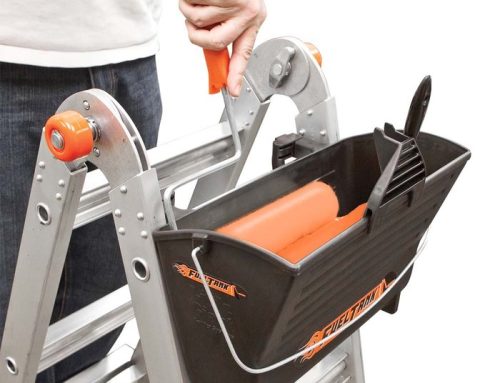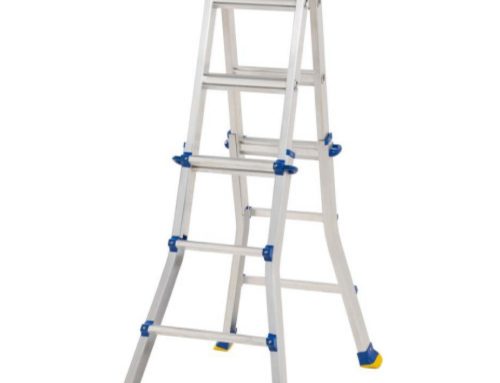That was the considered opinion of the lawyer representing the defendant in a strange case in the Michigan Court of Appeals recently. This inter-familial court case arose after a man sued his wife’s aunt for negligence following his fall from a ladder on her property. The plaintiff, Rodney Whiteside, regularly undertook paid maintenance duties at the home of his wife’s aunt Earlene Reinwand in 2020. On the day of the fall he was due to change an external light bulb on an outbuilding on her property, a task for which a ladder was needed.
Whiteside selected an aluminium extension ladder which did not have safety feet, being of an older design. This meant that the ladder was never going to be fully stable on the ground, but in the eyes of the court, this choice of ladder proved to be the deciding factor in the case. Reinwand initially held the ladder steady at the bottom while Whiteside removed the old bulb, but it was when he went to put the new one in that the ladder toppled and fell. The plaintiff maintains that Reinwand walked away and left the ladder unsupported, while she says it was his movements at the top of the ladder that caused the unbalance.
The courts decided that there was no special relationship between the plaintiff and the defendant that invoked a negligence doctrine; she was not obligated to steady the ladder, only to ensure she did not do anything that would have directly caused harm to Whiteside. His choice of ladder and decision to use it despite the lack of safety features and the fact that the task was not urgent meant that Whiteside knew the risks and accepted them in the eyes of the law.
While the litigious nature of American society was certainly a factor in this case even coming before the courts, it does raise a question about our obligations to others on our property and when we are liable for accidents and injuries caused. Generally speaking, people doing paid work on our homes are not people we are related to, and they will provide their own equipment. They will also have conducted a visual inspection of the property before quoting or accepting the job, so any potential sources of danger would be recognised and addressed ahead of time.
A tradesperson injured on our property, through no fault or action of ours, would be personally liable for their own injury – as they would if they caused damage to our property. A relative or friend, where there is no professional services contract in place, may choose to sue if they are injured helping us out, especially if the accident is the result of faulty equipment knowingly supplied by us, or as a direct result of our actions.
If we did not reasonably know about a fault in a ladder we let someone else use or they opted to use the wrong ladder and became injured as a result, that is not our responsibility as long as we can prove no malicious intent or negligence was a factor.
This whole case could have been avoided had Rodney Whiteside opted to bring his own ladders or somehow use one which had safety feet and was therefore fit for purpose. This is why we always say to use the correct ladder for the job, never to use a damaged or unsafe ladder, and always to have someone footing the ladder that won’t walk away while you’re up it!






Leave A Comment
You must be logged in to post a comment.